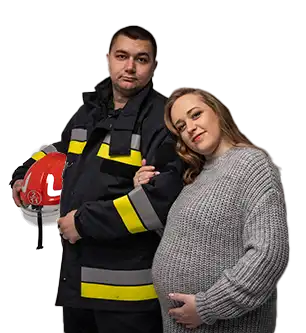
AFFF Bio-concentrations in Urban Gardening Could Be Source of PFAS
Cancer-causing PFAS chemicals may be accumulating in crops grown in contaminated soils close to former firefighting areas
Friday, May 23, 2025 - A hidden risk could be compromising efforts at sustainability and food access as cities turn to community gardens and green areas: PFAS poisoning of soil. Used for decades in aqueous film-forming foam (AFFF) to combat flammable liquid fires, per- and polyfluoroalkyl substances (PFAS) are now being found in the soil surrounding historic fire stations, training facilities, and airports. Linked to many health issues including immunological suppression, developmental delays, hormone disturbance, and malignancies including kidney and testicular cancer, these persistent toxins do not break down readily. Although water poisoning has received most of the attention paid to PFAS, new research indicates that urban agriculture initiatives in previously polluted areas could be at risk. Particularly leafy greens and root crops, vegetables produced in PFAS-tainted soil have the capacity to absorb these chemicals via their roots. For gardeners and community planners who unintentionally grow food in locations once subjected to firefighting foam runoff, this begs major concerns. Some are contacting an AFFF foam cancer attorney as awareness grows to better know whether exposure through food can result in health claims under an AFFF foam cancer lawsuit. Many communities remain uninformed of the possible risk hidden under their crops since little control directs soil testing for PFAS in urban gardens.
Growing worry about edible plants absorbing PFAS from soil and water is supported by emerging studies; some crops show higher degrees of bioconcentration. Once in America. Particularly when irrigated with polluted water, fruit including lettuce, carrots, and tomatoes grown in PFAS-affected soil revealed detectable levels of the chemicals according to a Department of Agriculture (USDA) study. These results have major ramifications for initiatives at urban gardening close to known or suspected AFFF use areas, such as former military facilities or historic firefighter training fields. Sadly, before using the property for leisure or agriculture, public agencies hardly ever do thorough PFAS soil testing. Particularly for sensitive groups like youngsters and pregnant women, this disparity in control could lead to long-term exposure to cancer-causing chemicals via nutrition. Although the U.S. Environmental Protection Agency (EPA) recognizes PFAS as a major public health risk, present federal recommendations center more on drinking water standards than on soil pollution. Well-meaning horticultural endeavors could accidentally raise health hazards without defined boundaries or general knowledge. Legal experts caution that, especially as scientific data grows linking soil pollution to human consumption, PFAS exposure via food chains may soon take the front stage in AFFF litigation. Before sanctioning land for food production, community leaders and environmental health groups are urging more openness, regular soil testing, and site history evaluations. Gardeners close to suspected sites are advised to think about raised beds with clean soil, cut the usage of high-risk crops, and investigate the environmental past of their area. Urban agriculture will have to change going forward to accommodate the growing hazard of PFAS in soil, particularly in places where firefighting foam use has passed. Particularly in those close to historic fire zones, regulatory authorities may have to set testing criteria and pollution limitations, especially for gardening areas.
 OnderLaw, LLC and The Overholt Law Firm, PC -
OnderLaw, LLC and The Overholt Law Firm, PC -